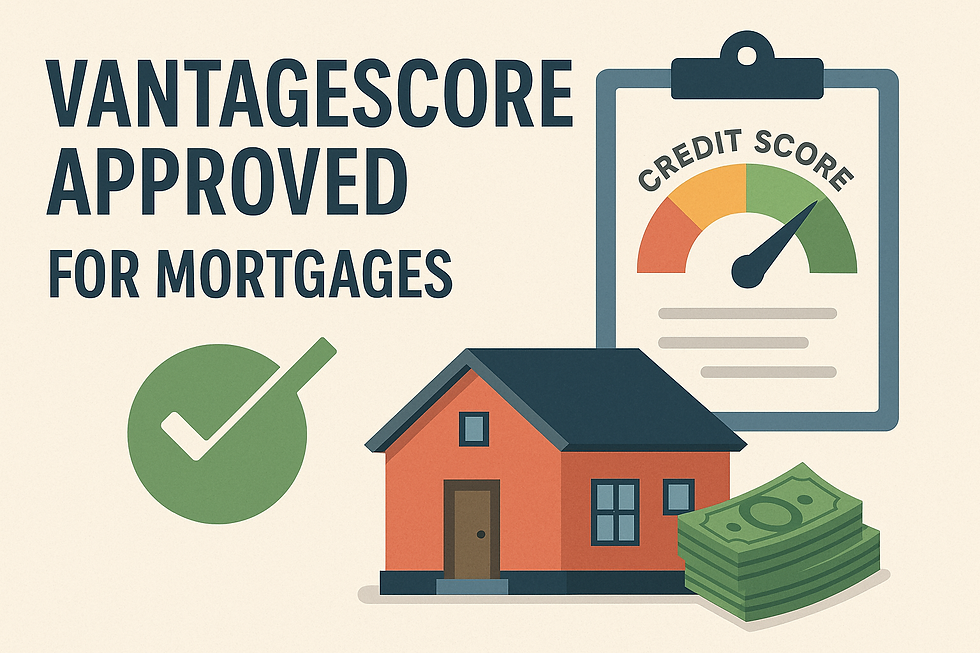Understanding Debt-to-Income Ratio (DTI): A Key Factor in Mortgage Loan Approval
- Paul Cantor

- Aug 10, 2024
- 3 min read
When you’re in the market for a new home and considering a mortgage, one of the most crucial factors that lenders evaluate is your Debt-to-Income Ratio (DTI). At Cantor Team Home Loans, we believe that understanding your DTI and how it impacts your mortgage application can empower you to make informed decisions and increase your chances of approval.
What is Debt-to-Income Ratio (DTI)?
DTI is a simple but powerful financial metric that compares your monthly debt payments to your gross monthly income. It gives lenders a clear picture of how much of your income is already committed to paying off debt and how much you have available to take on a new mortgage.
There are two types of DTI that lenders typically consider:
1. Front-End Ratio (Housing Ratio): This ratio looks at the percentage of your income that goes towards housing expenses, including your potential mortgage payment, property taxes, homeowners insurance, and any applicable association fees.
• Calculation:
Front-End DTI = (Monthly Housing Expenses / Gross Monthly Income) x 100
2. Back-End Ratio (Total Debt Ratio): This ratio includes all your monthly debt obligations, such as credit card payments, car loans, student loans, and any other recurring debts, in addition to your housing expenses.
• Calculation:
Back-End DTI = (Total Monthly Debt Payments / Gross Monthly Income) x 100
Why is DTI Important for Mortgage Approval?
Lenders use DTI to assess your ability to manage monthly payments and repay the loan. A lower DTI indicates that you have a good balance between debt and income, making you a lower risk for lenders. On the other hand, a higher DTI suggests that you might struggle to manage additional debt, which could lead to a higher risk of default.
Most lenders prefer a Front-End DTI of 28% or lower and a Back-End DTI of 43%.

However, these are general guidelines, and some loan programs may allow for higher DTI ratios, especially if you have strong compensating factors like a high credit score or significant savings.
How Can You Improve Your DTI?
If your DTI is on the higher side, don’t worry—there are steps you can take to improve it before applying for a mortgage:
1. #PayDownDebt: Focus on reducing your current debt balances. Paying off credit cards or loan balances can lower your monthly obligations and improve your DTI.
2. #IncreaseYourIncome: Consider ways to boost your income, whether through a raise at your current job, taking on a side gig, or other income-generating activities.
3. #AvoidNewDebt: Hold off on making large purchases on credit until after your mortgage is secured. New debt will increase your DTI and could negatively impact your mortgage application.
4. #RefinanceOrConsolidate: If you have high-interest debt, consider refinancing to a lower interest rate or consolidating multiple debts into a single payment, which could reduce your monthly obligations.
The Bottom Line
Your Debt-to-Income Ratio is a critical factor that lenders use to determine your mortgage eligibility. By understanding DTI and working to keep it within acceptable limits, you can improve your chances of getting approved for the mortgage you need to buy your dream home.
At Cantor Team Home Loans, we’re dedicated to helping you build wealth through home ownership. If you have questions about your DTI or need personalized advice, we’re here to assist you every step of the way.
Ready to take the next step? Schedule a consultation with us today, and let’s work together to make your homeownership dreams a reality.




Comments